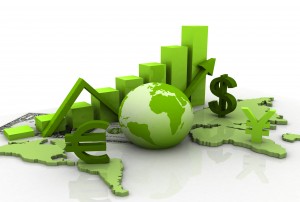
I’m talking about IMF Chief Christine Lagarde’s “Back to Rio, the road to a sustainable future” speech at the Center for Global Development (CGD), just up the road from the IMF in Washington DC.
Lagarde said (my itallics) “We are facing a triple crisis – an economic crisis, an environmental crisis and increasingly a social crisis…these different threats feed off each other in an intricate interplay. We cannot address each in isolation”. Lagarde talked about achieving sustainable and inclusive growth. She pledged support for green GDP, carbon pricing, natural resource accounting and phasing out of fossil fuel subsidies (which cost $500billion a year, and was one of the most talked about issues at Rio).
CGD bloggers noted that the remarks, “would not have been newsworthy coming from the head of an international environmental NGO or even the head of the World Bank, but from the head of the IMF, a citadel of economic orthodoxy, they surprised and delighted”.
My particular interest is that these remarks put the IMF, at least on a rhetorical level, in a very similar place to the OECD, which has always stressed the importance of environmental and social policies and whose headline message in recent years has been “Go Structural, Go Social and Go Green” but like the IMF has a reputation for economic orthodoxy.
As the OECD forges ahead on Green Growth it can only be good news if the IMF is engaged. The world’s two leading international economic organisations have gone on the same intellectual journey and appear to be arriving at the same place. Is this a new orthodoxy where environmental issues are properly mainstreamed into economic thinking?
Let’s hope IMF and OECD member governments are listening. Not least in view of a recent report by a sister organisation of the OECD – the International Energy Agency – who said that the radical transformation of our global energy system that is needed to limit global temperature rise to 2 degrees is way off-track and that the situation is “bleak” and “woeful”.
